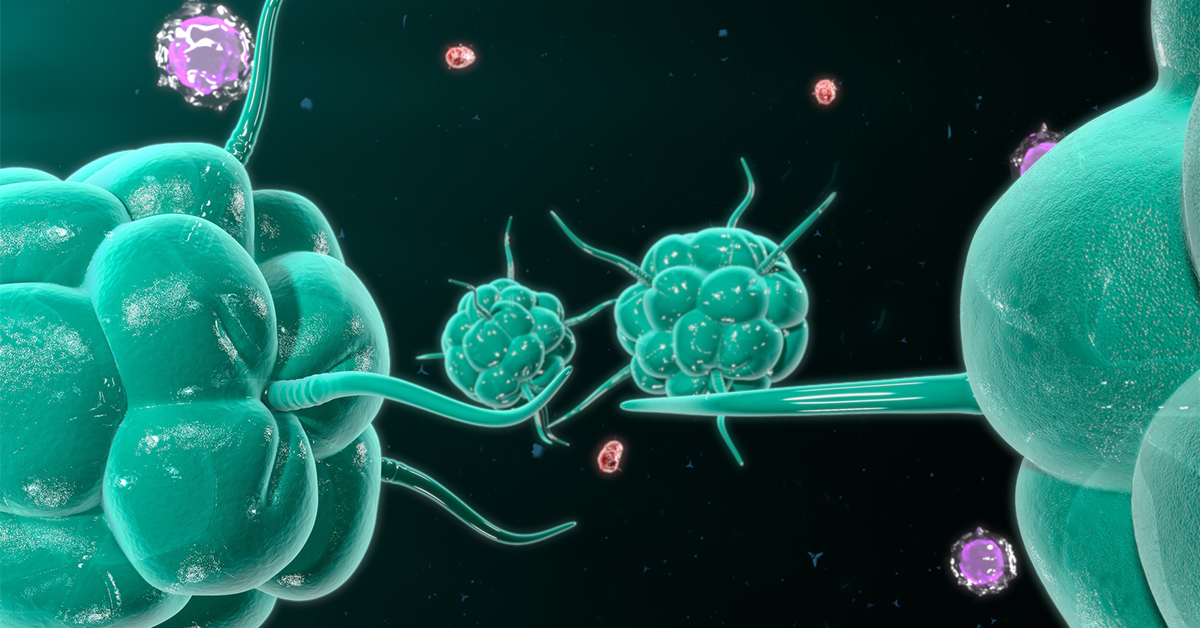
Did you know that you don’t have to be in pain, injured, or ill to benefit from acupuncture? Of all acupuncture’s functions, its most fundamental action is to boost your immune system. Acupuncture belongs on the front lines in the fight against disease. It is an ally in your quest for vibrant health.
In Traditional Chinese Medicine (TCM) language, certain acupuncture points augment the Wei Qi, also called Defensive Qi. The Wei Qi is a barrier against external pathogens. This concept is vague, to say the least, but it does reveal a fundamental difference between Western and Eastern view of disease. Western medicine tends to attack pathogens after they have already set in the body. Eastern medicine more frequently looks to prevent the disease by keeping the body’s systems functioning optimally.
How does acupuncture boost immune strength? There are many hypothesized models on how acupuncture works, but let’s start with the acupuncture points themselves. A 2013 study examined whether acupuncture points have characteristics distinguishable from surrounding tissues. Researchers used CT scans to compare images of acupuncture point locations with non-acupuncture point locations. The results are astounding. The locations of acupuncture points revealed micro-vascular clusters that were not found at the non-acupuncture point locations[1]. With this knowledge, we can surmise that acupuncture works through the vascular system.
You may now wonder what precisely is being circulated through these microvascular clusters. For this answer, we can look at a 2009 study funded by the National Institutes of Health. Researchers reviewed numerous studies on acupuncture and the treatment of cancer. Through this analysis, they confirmed that acupuncture activates the body’s own natural killer (NK) cells. The researchers then developed a hypothesis of the physiological action that occurs. This hypothesis explains that stimulation of an acupuncture point that is commonly used to enhance immunity causes the release of nitric oxide, a neurotransmitter. This neurotransmitter allows signals to be sent through the nerves and spinal cord to the brain (precisely the hypothalamus) where it promotes secretion of endorphins. The endorphins then travel through the blood stream to the spleen and other body locations that contain immune cells, bind to the NK cells, and activate them to release tumor killing cytokines[2]. Previous studies show that other immune cells also increase, including white blood cells which are our first defense against infection[3].
Of course, acupuncture is only part of the picture when it comes to staying healthy. When you visit an acupuncturist expect your entire lifestyle to be put under the microscope, especially if your immune system is deficient or under attack. The intent of any initial consultation with an acupuncturist is to come away with a comprehensive analysis of your day-to-day life. Here is a sample of what will be examined:
Stress Level
Stress and other psychological factors are not separated from your physical health. For example, stress-induced anxiety has a direct impact on digestive disorders such as reflux and irritable blow syndrome. Expect your acupuncturist to help you identify your biggest stressors. You and your acupuncturist together can explore ways to mitigate their effect on you. Meditation and breathing exercises are just a couple of tools to help you navigate daily stressors.
Diet
Just remember that an acupuncturist is a holistic practitioner. She or he may not be concerned about convenience when it comes to food, but rather wants you to see how your health is worth the extra attention to diet. You may be told to:
- Eat high quality, organic foods
- Avoid cold, raw foods including frozen smoothies, and too many salads.
- Eat your fruits and lightly cooked vegetables
- Drink plenty of clean filtered water, but not iced!
- Cut down on refined carbs and sugar
- Reduce intake of pasteurized dairy
Exercise & Lifestyle
An acupuncturist is not a magician. You must also put in the effort to maintain balance in your life. Sleep, exercise and diet will still be the best medicine. Acupuncture is never meant to take their place. However, an acupuncturist may make these suggestions:
- Get to bed by 10:30 and strive for eight hours of sleep.
- Move! We’ve all heard that sitting is the new smoking. Our 9 to 5 desk time is wreaking havoc on our health. Get up a move every 30 minutes.
- Exercise at least 20 minutes six days a week.
- Avoid habitual use of antihistamines and sinus medication.
Your body’s natural defenses are extraordinary, but they rely on you for care and sustenance. When it fails you, it will likely be due to an overall pattern of bad health. Do not wait until you wear your defenses down to dangerous levels. Return to a path of balance. Book your appointment with Dr. Stier today.
[1]Liu, et al. “X-ray phase-contrast CT imaging of the acupoints based on synchrotron radiation.” Journal of Electron Spectroscopy and Related Phenomena (2013). http://www.healthcmi.com/Acupuncture-Continuing-Education-News/1230-new-ct-scans-reveal-acupuncture-points
[2]Johnston, et al. “Acupuncture May Stimulate Anticancer Immunity via Activation of Natural Killer Cells.” Evid Based Complement Alternat Med (2011). https://www.hindawi.com/journals/ecam/2011/481625/abs/
[3]Yamaguchi, et al. Acupuncture Regulates Leukocyte Subpopulations in Human Peripheral Blood. Evid Based Complement Alternat Med. 2007 Dec; 4(4): 447–453. https://www.ncbi.nlm.nih.gov/pmc/articles/PMC2176150/
To Schedule an Appointment
Please call our office or click the button below
(760) 652-9585
Leave a Reply